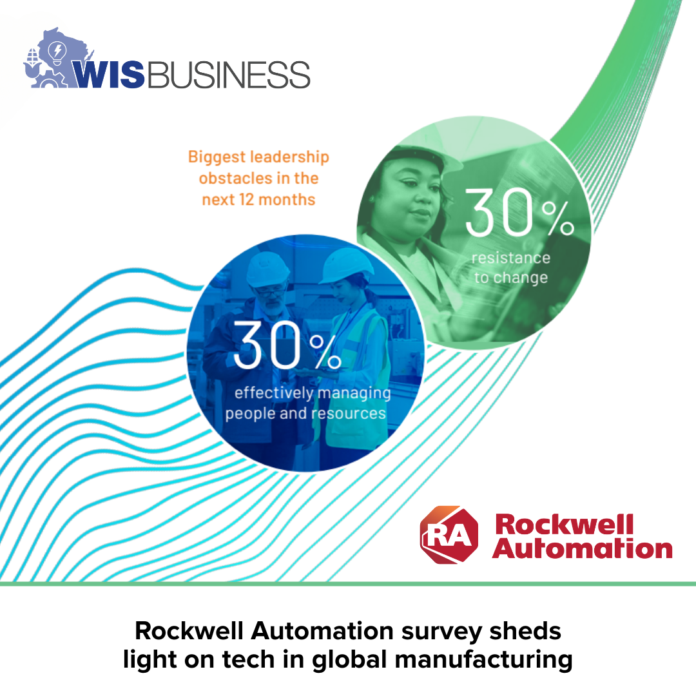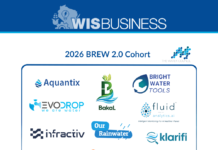A recent global survey of manufacturers from Milwaukee’s Rockwell Automation finds integrating new technology has become the top internal obstacle.
The company yesterday released its 10th annual State of Smart Manufacturing Report, which includes survey results from 1,560 respondents across 17 of the top countries for manufacturing. The online survey explored how businesses are deploying new technologies like AI and automation while navigating cybersecurity issues, inflation and other hurdles.
In last year’s survey, respondents pointed to attracting employees with desired skillsets as their No. 1 internal obstacle. This year, that has fallen to No. 5, having been ousted by worries about deploying and integrating new technology. Other top internal concerns this year include balancing quality and profitable growth, and budget constraints.
But when looking at external challenges, respondents once again said inflation is the top concern, followed by cybersecurity at No. 2. Concern about online threats has risen from No. 5 in last year’s ranking.
Stephen Ford, vice president and chief information officer for Rockwell Automation, says the findings confirm what the company is seeing firsthand, that cybersecurity risks pose “one of the top threats” to manufacturing growth.
“You can’t protect tomorrow’s enterprise with yesterday’s tools,” he said in a statement. “AI is a critical part of the modern security stack, enabling manufacturers to detect threats in real time, maintain productivity, and stay ahead in an increasingly aggressive threat landscape.”
When asked about how they’re using AI and machine learning over the next 12 months, 49% said they’re using it for cybersecurity purposes — up from 40% in last year’s survey. Meanwhile, 50% of respondents pointed to quality control, followed by process optimization with 42%, robotics with 37% and logistics with 36%.
The report illustrates the widespread acceptance of AI in the manufacturing sector, with 95% of all respondents saying they’ve either invested in or plan to invest in some form of AI over the next five years.
“AI is poised to have a transformative impact on supply chain management, with a third planning to use it for managing their supply chain,” authors wrote, noting the changes identified in the survey suggest AI is increasingly a “core of technology strategy.”
Survey respondents included professionals in management to executive level, conducted by the company and the UK’s Sapio Research. It covered various industries within manufacturing including automotive, semiconductors, life sciences, energy and more, with individual respondents’ company revenues ranging from $100 million to more than $30 billion.







